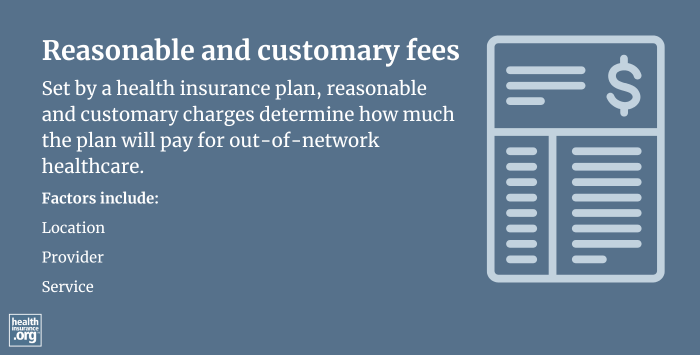
What are reasonable and customary fees?
If a health plan covers out-of-network care, they will generally set "reasonable and customary" charges for a particular service and area, to determine how much they will pay an out-of-network provider.
For in-network providers, there is simply a negotiated rate that the provider and the health plan have agreed to in their contract. This is the amount that the plan will allow, and the provider has to write off any charges above that amount (depending on the plan specifics and how much cost-sharing the patient has already paid for the year, the allowed amount might be paid fully by the health plan, fully by the enrollee, or split between them).
But out-of-network providers don't have a contract with the health plan. Some health plans don't cover out-of-network care unless it's an emergency. But for those that do, they need a way of determining how much they should cover for an out-of-network service. Reasonable and customary charges are based on typical charges from other providers in the same area.1
Out-of-network providers are not required to accept the reasonable and customary amount as payment in full, and can balance bill the patient for costs above that level. Sometimes, however, if an individual questions an out-of-network provider about their charges, the provider may be willing to reduce the charge to the amount that the insurance company has defined as reasonable and customary.
Footnotes
- "Types of Out-of-Network Reimbursement" FAIR Health Provider. Accessed Oct. 15, 2024 ⤶


